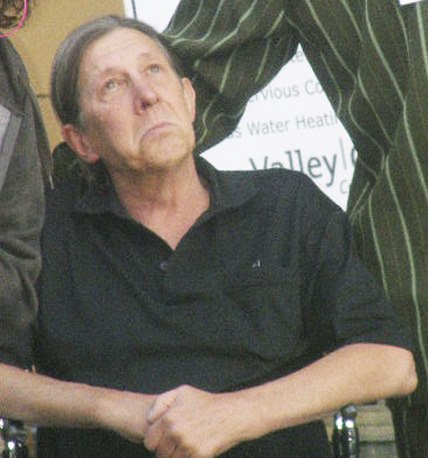Arthur McElroy returned from his tour of duty in Vietnam with post-traumatic stress disorder then suffered debilitating ailments over the years, including three herniated disks, a double hernia and severe depression.
Unable to work, his life spiraling downward, the wheelchair-bound veteran turned to the bottle. Six months ago the Salvation Army found out he had bedbugs and evicted him from the men’s shelter where he was living and out into the wind, rain and cold, the misery of sleeping under bridges and life in the woods.
“I was homeless mostly from being sick. I couldn’t work. I did everything I could, but I had no income … Being in the woods, you really feel like a target out there,” said McElroy, victim of one brutal assault that shortened a leg by four inches.
But last week the 54-year-old U.S. Army vet was settling into a home as the first to move into Valley Cities Counseling and Consultation’s permanent residential housing for the homeless just south of its offices on I Street Northeast. He is one of 24 formerly homeless people, 12 of them veterans, offered a place at Valley Cities Landing.
He was there last Friday to celebrate the grand opening.
“Beautiful, it’s what I need,” said McElroy, looking around with a wide grin at his studio apartment billed with boxes, freshly washed clothes, pots and pans just out of the box and other reliable indicators of the just-moved-in. “Maybe it’s more than what I deserve, but I’m damned sure glad it’s here. This is a blessing for me.”
Valley Cities Landing provides homes for people with chronic mental illness who have lived perhaps many years on the streets, including those like McElroy who are still carrying with them the wounds of war. Willie Gregory, a veteran himself, is the case manager for the whole building. His purpose is to hook people up with resources they need to stabilize and rebuild their lives, whether that’s medical, food, counseling or any combination of the above.
All of the studio units — 20 at 400 square feet, four of them 450 square feet for the disabled — offer a bathroom and shower stall, a refrigerator, heat, a stovetop and furniture. The floor covering is porcelain tile in areas that can become moist and cork tile as a sustainable resource that is comfortable and easily maintained. Cork won’t absorb moisture, won’t burn and does not promote bacterial growth. Bath areas feature in-floor radiant heat to remove moisture.
“Everything they need is right here,” said Kim Wilhite of United Marketing and Condominiums, the property management team.
King County Councilman Bob Ferguson, an early supporter of the 2005 Veterans Human Services Levy that kicked $2 million into the project, explained why this matters so much.
“When it comes to the homeless, there is nothing more fundamental than a home,” said Ferguson. “We take it for granted, but I can assure you that none of the 24 folks taking up space in the new residences here take it for granted, and they never will.”
“It was a Housing First Project, which is a good model because it works,” said King County Executive Dow Constantine. “First, it gets people off the street into safe, warm and dry shelters, but we don’t stop there.”
Indeed, there are onsite services, including mental health, chemical dependency treatment, health care, trauma counseling and job training.
“It is going to make a difference in people’s lives,” said Auburn Mayor Pete Lewis.
The Veterans and Human Services levy provided $2 million for Valley Cities Landing. Other funding was provided by the Washington State Department of Veterans affairs and mental health sales tax capital funding that helps cover services to make sure residents get counseling support and help.
“It means housing, getting them off the street, getting them a step up in life where they can have something they call their own,” said Roger Welles, National Service Representative from Seattle Chapter 102 of Vietnam Veterans of America.
“I would guess that 20 to 30 percent of the homeless are veterans,” said Welles. “Some people don’t readily adjust to coming home. They may not have a place to go, and if they have problems or other situations that get them down, they can become homeless. Once we find them, we like to get them into some sort of housing like this.”
The mattresses are all bedbug resistant. Anything the residents bring in is heat sterilized.
“There has also been an outpouring of compassion from the Auburn community,” said Pam Taylor, development director for VCCC. “Barb Muczynski, a retired teacher, lifelong Auburn resident and board member of VCCC has spent the last two years collecting items from the community such as blankets and toothbrushes, all kinds of things to make these apartments welcoming so the residents feel at home.”



